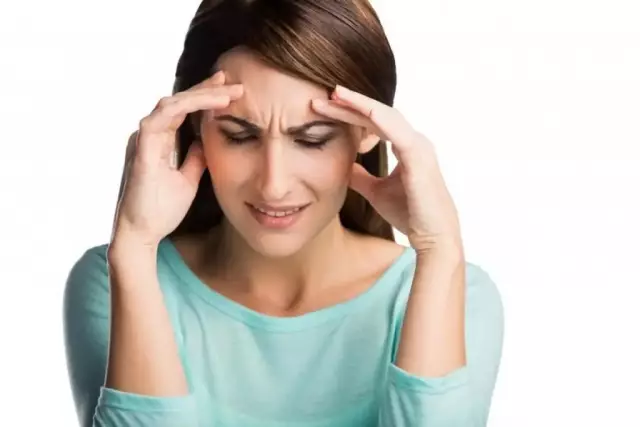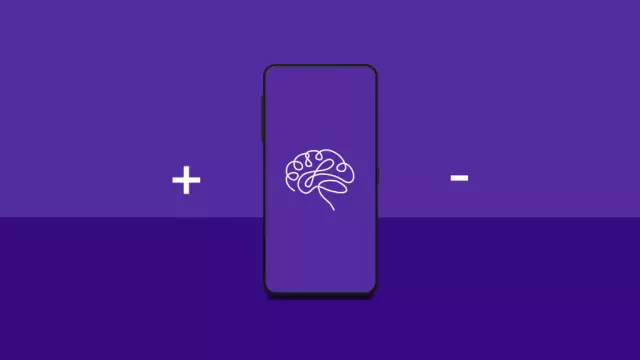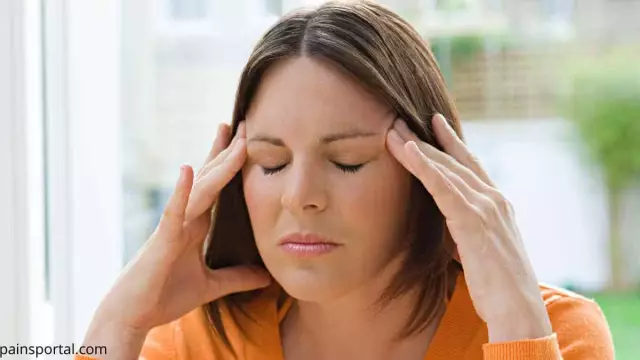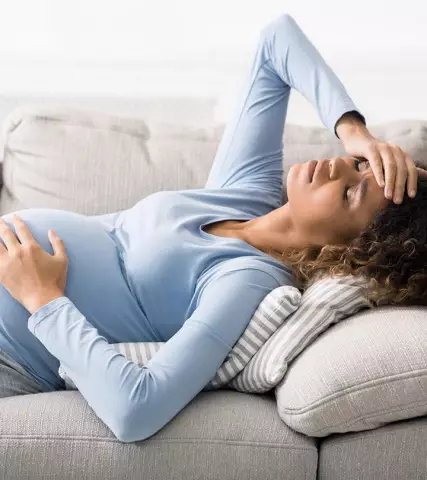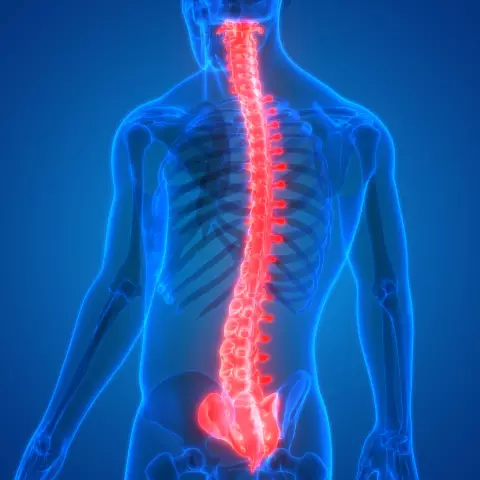- Author Rachel Wainwright wainwright@abchealthonline.com.
- Public 2023-12-15 07:39.
- Last modified 2025-11-02 20:14.
Headache
Headache is one of the most common complaints people go to for medical attention. The latest

epidemiological studies show that more than 80% of the adult population of the planet suffer from headaches, and in 30% of them headaches cause a persistent decrease in efficiency and quality of life. Headaches complicate the course of many diseases, and also provoke the development of autonomic disorders, depression and sleep disorders.
Headache is the leading or only complaint in more than forty different diseases: diseases of the eyes, ENT organs, nervous system, pathology of the kidneys and endocrine system, arterial hypotension, depression, neurosis and hypertension.
The most common forms of headache are migraines and tension headaches.
Causes and symptoms of headache
The four main causes of headaches are:
1. Organic diseases of the brain or liquorodynamic disorders:
• volumetric formations of the brain (headache is mainly observed in the morning, combined with vomiting and nausea);
• head trauma (acute or chronic, general or localized), difficult to treat;
• inflammatory diseases (meningoencephalitis, meningitis).
2. Vascular causes of headache:
• arterial hypertension (pressing, severe, throbbing headache in the back of the head and neck);
• migraine (severe throbbing headache in one of the halves of the head, nausea, vomiting, sound and photophobia). Migraines are most often affected by young women. Migraine can also be inherited;
3. Psychogenic causes of headache:
• tension is the most common form of headache (tension headache symptoms: constant tightening, squeezing, compressive pains of moderate or low intensity, not having a clear localization and not aggravated by physical exertion). Caused by mental stress due to chronic or acute stress.
4. Extracerebral causes:
• exposure to chemicals or drugs. Substances or drugs that can cause headaches - lead, insecticides, carbon monoxide, benzene, alcohol, caffeine, nitrates (eg, nitroglycerin), oral contraceptives;
• extracerebral diseases of an infectious nature. Many bacterial or viral infections begin with headache attacks, and only then other symptoms join in the form of fever, drowsiness, lack of appetite, and others;
• pathology of the mouth, teeth, nose, paranasal sinuses, ears, eyes, neck, other structures of the face and skull (with sinusitis, glaucoma);
• metabolic disorders (dialysis, hypercapnia, hypoxia);
• cervical osteochondrosis. The pain can be chronic or episodic. It is localized in the cervico-occipital region and spreads to the eye-temporal region. People with this pathology have stiffness in the muscles of the back and neck, as well as restrictions on movement in the cervical spine. The causes of such pain can be prolonged physical activity associated with overextension or tilt of the head, sleeping in an uncomfortable position.
Methods for diagnosing headache

Since there are many causes of headache, a comprehensive examination is necessary. It is advisable to consult a neurologist, therapist, ophthalmologist, and, if necessary, an infectious disease specialist and neurosurgeon.
A general blood test and lipid profile are often used as laboratory tests. Doppler ultrasonography, electroencephalography, computed and magnetic resonance imaging, and examinations of the cervical spine, as well as the thyroid gland are used as functional studies.
The number of studies is prescribed by the attending physician, taking into account all the patient's complaints and detected somatic diseases.
Headache treatment
Headache treatment depends on the severity and type of headache, as well as factors such as the patient's age and others. If the headache is a symptom of another disease, the underlying disease should be treated.
To relieve acute headaches, analgesics are used - non-steroidal anti-inflammatory drugs - ibuprofen, paracetamol, as well as drugs based on them with the addition of caffeine (panadol, pentalgin, solpadein, noshpalgin), spasmolytics. Medicines on their own can be used only once, abuse of analgesics can cause many side effects - disturbances in the work of the gastrointestinal tract, kidneys, liver.
Also used to treat headaches are gabapentins, valproates, muscle relaxants, B vitamins, sedatives, neuroprotectors, diuretics, antioxidants, vascular medications, and physical therapy.
How to relieve a headache
In case of a headache, it is undesirable to drink coffee, it is better to drink tea, since coffee can relieve pain only for a while, and then the pain returns with a vengeance.
How to relieve headaches using folk methods? According to folk medicine, a cabbage leaf can help relieve headaches. It must be dipped in boiling water for a minute, dried, cooled and applied to the temples, forehead or back of the head (depending on where exactly you are experiencing pain). Then you can drink freshly brewed tea with mint leaves and honey (honey contains magnesium and potassium, which improve blood circulation and, thus, relieve tension in the arteries).
Other folk methods:
• Drink apple cider vinegar diluted in a glass of water;
• Aromatherapy: Rub one or two drops of rosemary or lavender essential oils into whiskey;
• Menthol ointment. Spread over forehead or temples;
• Light massage of the head: stroking movements should be done from the frontal zone to the occipital region. Further from the crown of the head down to the ears, from the crown to the back of the head and gently lower to the neck. Finish with a calm massage of the neck-collar zone;
• A very effective and well-known remedy for relieving headaches is the "star" balm;
• Sleep. Rest and darkness will greatly help relieve headaches;
• Lemon peels. Peel the inner parts of the lemon peel from the white pulp and apply to the temples. Over time, an itchy reddish spot will appear in the temple area and the headache will disappear.
YouTube video related to the article:
The information is generalized and provided for informational purposes only. At the first sign of illness, see your doctor. Self-medication is hazardous to health!

